In the summer of 2025, a total of 15 independent regional and local media outlets across Ukraine took on a cause that at first glance might have seemed too ambitious. At a time when every day brings new challenges, and some journalists work under fire, they have decided not to simply inform, but to change the lives of their communities.
The support program, organized by the National Union of Journalists of Ukraine (NUJU) with funding from the Ukrainian Media Fund, became an experiment: can local media outlets become real catalysts for positive change even when martyrdoms are exploding all around?
How the resilience network was built
The geography of the project spans from Zaporizhzhia Pmg.ua to the Donbas-based Zori and Technopolis. Among the 15 media outlets are one television company, two radio stations, four online resources, and eight print publications. And most importantly, six of them work in frontline conditions, overcoming daily challenges related to the safety of personnel and the continuity of broadcasting.
“The media submitted applications with proposals for their own mini-projects, which they will implement for their audience in their communities. The main key point is to establish communication between the audience and the authorities, receive feedback from readers, and study the needs of the community,” explains NUJU project coordinator Iryna Khromenko.
The donor’s funds were allocated to operating expenses, including journalists’ salaries, printing and distribution of publications, maintenance of newsrooms, and content creation.
“The project confirmed the important role of supporting independent local media in Ukraine, especially in times of war,” emphasizes NUJU President Sergiy Tomilenko. “When russian propaganda tries to misinform Ukrainians and the occupiers purposefully destroy our media infrastructure, access to reliable information becomes a matter of national security. Local media is not just a source of news; it is the voice of the community, its conscience, and a defender of its interests. They know the problems of their readers from the inside and can offer specific solutions.”
When the media become lifesavers
The initiative of Putylivski Vedomosti from the Sumy Region is noteworthy, as it has decided to research the level of readers’ awareness of the rules of behavior in conditions of mine danger.
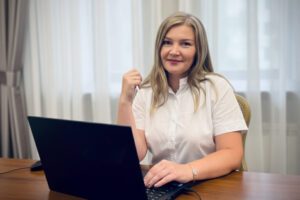
The project “You are in your native land! When it becomes dangerous at home – take care of yourself” became an example of how local media can literally save the lives of their readers. Initially, the newsroom conducted a survey among residents of Putyvl and the Novoslobodsk community via Telegram and Facebook to identify the most pressing safety issues.
Seventy-seven people completed the survey. The results showed an extremely low level of awareness: 32% of respondents wanted to know what “butterfly” mines and fiber-optic drones look like, many were interested in the most dangerous place during air defense operations on shaheeds, as well as how to behave during UAV attacks and provide first aid.
“We aimed the project at elderly people, who usually do not fall into the audience of educational events. And we have the absolute majority of such people,” says Tetiana Kaushan, the editor-in-chief of Putyvlski Vedomosti.
The journalist involved experts from the Interregional Center for Humanitarian Demining and Rapid Response of the State Emergency Situations Service (SESS), based in Romny, and organized a practical training on July 16 at the Putyvl Extracurricular Activity Center. “We thank the community for providing us with reliable shelter for the training – it is very much in demand these days,” says Tetiana Kaushan.
The training lasted over two hours and covered four important blocks: mine safety with a demonstration of models of mines and explosive devices, examples of tragedies from careless behavior; protection from air attacks with rules of conduct during attacks by “shaheeds” and shelling; psychological support with methods of overcoming stress, panic attacks and various reactions to emergencies; first aid with training in applying tourniquets and providing first aid.
“More than 30 people gathered – along with the elderly, their children, and grandchildren came. We listened very carefully, practiced, and wondered where to buy turnstiles (unfortunately, this is a problem),” says Tetiana Kaushan.
The project results were published in various formats: a video on social networks, an article in a printed newspaper, and a publication on the publication’s website. The media served as a communication platform between the audience and relevant services, providing access to vital information.
The project by Nikopol radio, Nostalzhi, “Heroes of Nikopol in Orange Vests,” was very moving, drawing attention to the work of public utilities in conditions of constant shelling. In July 2025, two programs were broadcast, and approximately 62,000 radio listeners tuned in to hear them.
“We say ‘thank you’ to those who make Nikopol clean, bright, and alive – even under shelling. We wanted to draw attention to the daily selfless work of municipal service workers of the city of Nikopol, who ensure the life of the city even under constant shelling “… to maintain the infrastructure and maintain cleanliness and order on the streets of our frontline city,” says Olena Halina, the news editor of the TV and radio company, Radio Nostalgia 102.4 FM.
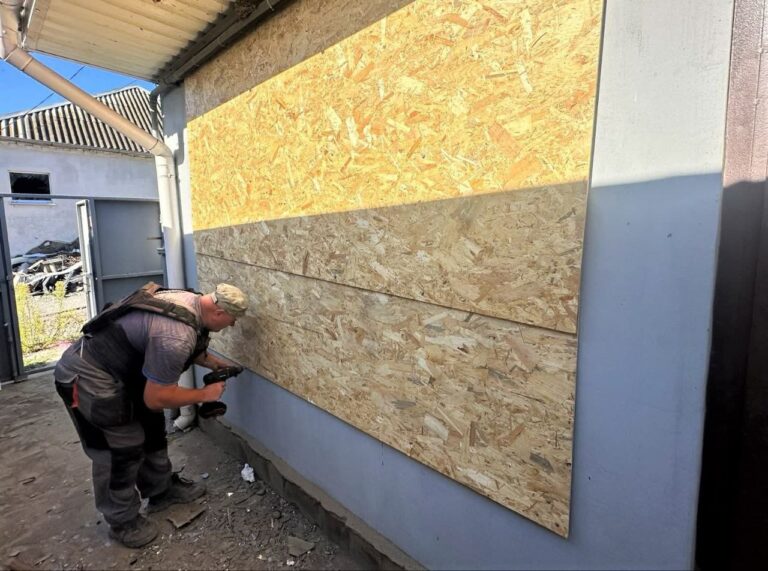
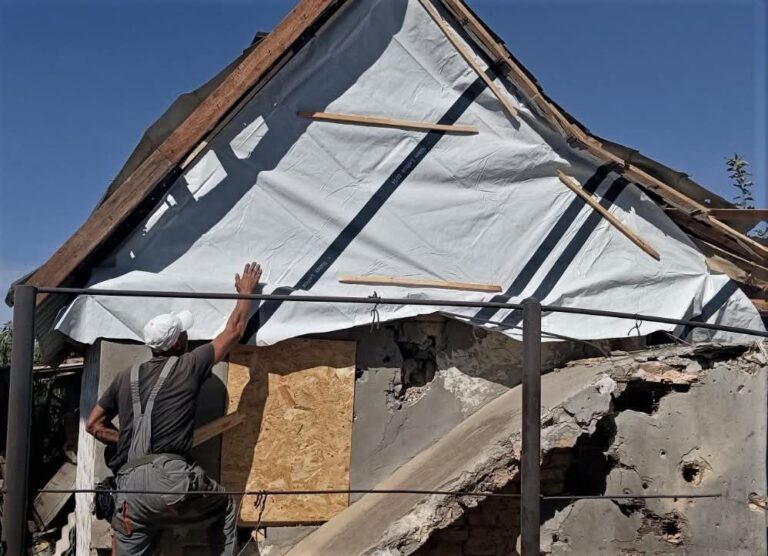
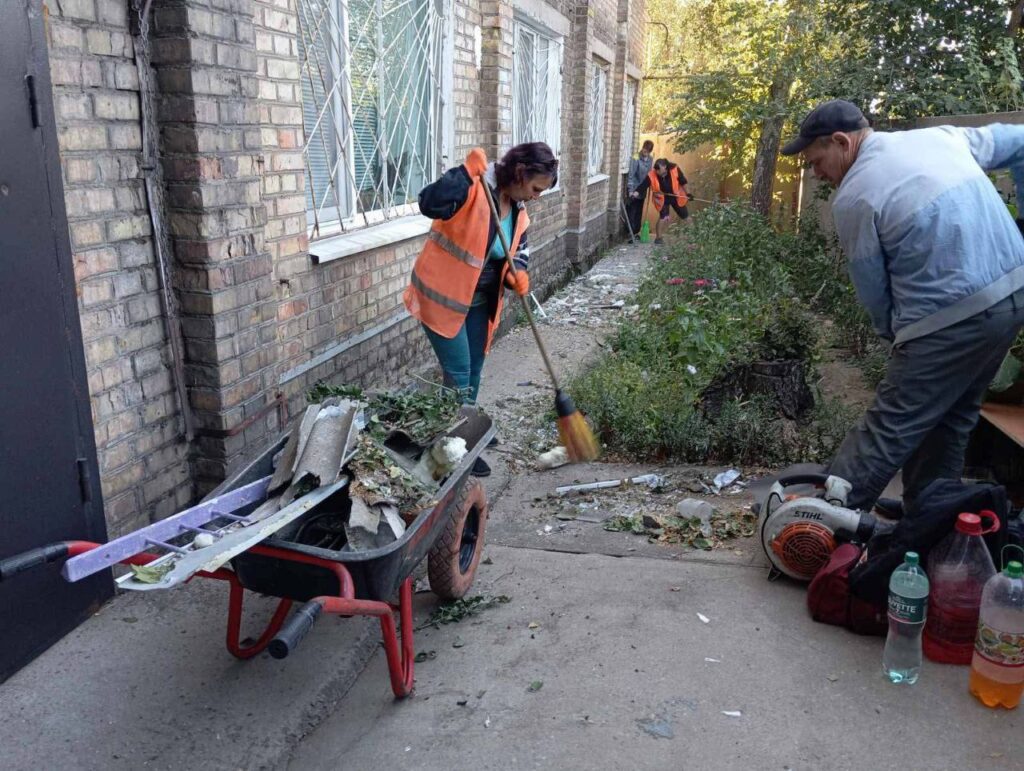
The people of Nikopol note that during the war, the city became cleaner, as utility workers continued to work even under the threat of enemy attacks. After each shelling, they immediately leave to eliminate the consequences and restore the infrastructure. The authors of the project attempted to demonstrate that heroes are not only those on the front line, but also those who, risking their lives under constant shelling, clean, repair, and save the city every day.
Television as a space for deep conversations
One of the most striking examples of quality journalism was the work of the Ivano-Frankivsk TV and radio company, RAI, which implemented the public and political project “The Power of the Word.”
“We have been implementing this project for a long time, but it is very difficult to do it without sponsorship,” notes Andrii Rusyniak, the director general of RAI TV and Radio Company. “Syla Slova gives young people the opportunity to talk about their work and interests.”
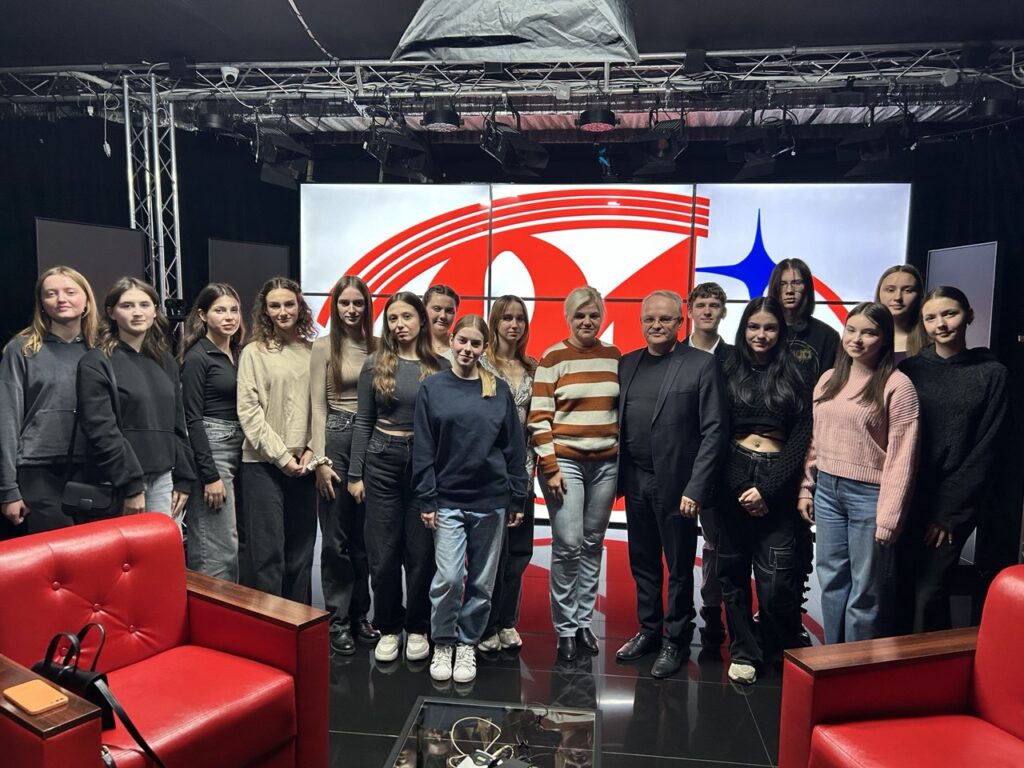
In July 2025, the Syla Slova show discussed the reform of high schools. This topic concerns every Ukrainian family with school-age children. Representatives of various sectors were invited to the studio: Lesia Pavliuk, a teacher from Ivano-Frankivsk, who was among the 50 best teachers in the world according to the Global Teacher Prize 2025; Mykhailo Honchar, an education expert at the Association of Ukrainian Cities; People’s Deputy Oksana Savchuk; Yuriy Stefanchuk, executive director of the regional branch of the Association of Ukrainian Cities, and Mariyana Vershynina, head of the Mothers of Prykarpattia non-governmental organization.
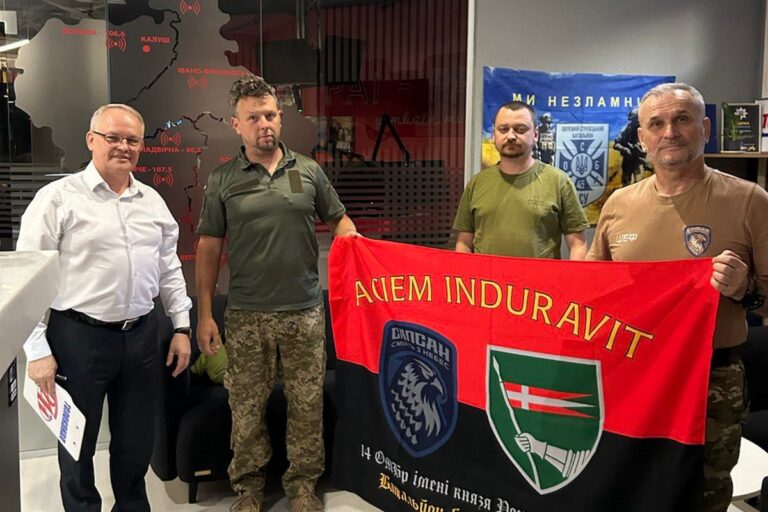
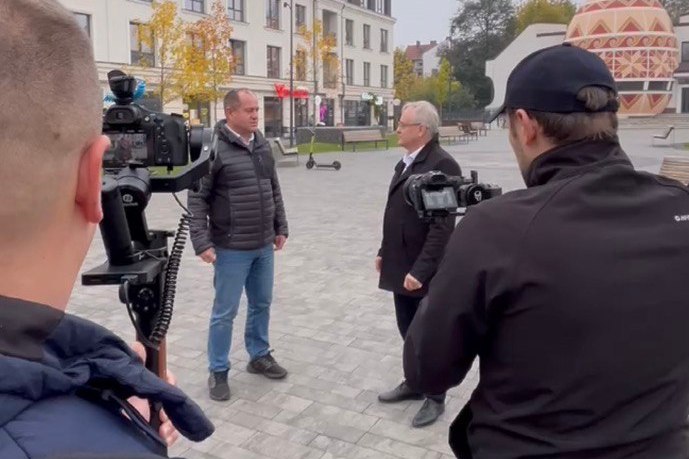
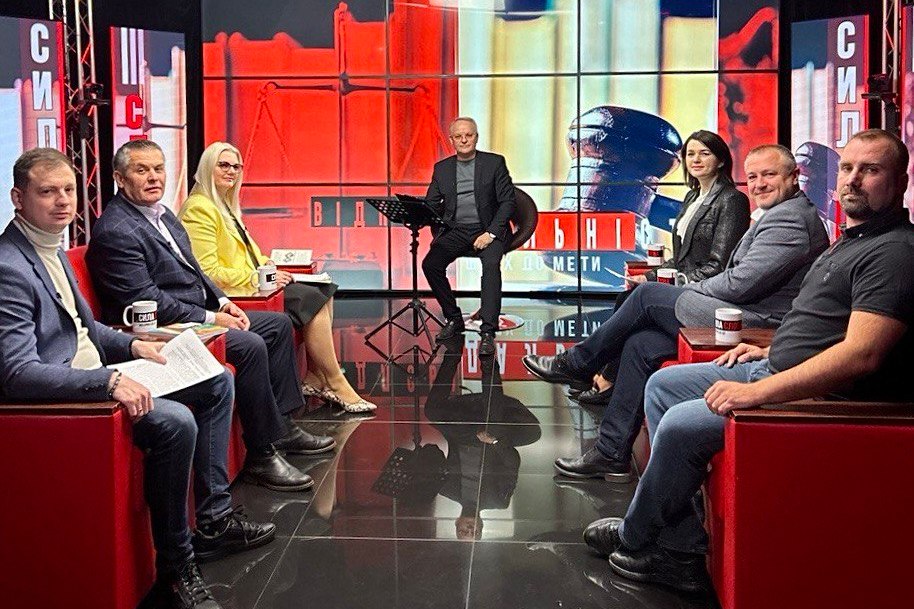
“The program gave a voice to experts and practitioners who directly influence the formation of educational policy, revealed different views – both from educators and legislators, and the public, and helped viewers navigate the reforms,” emphasizes Andrii Rusyniak.
Radio Halychyna FM took a serious approach to the All of Ourselves project, dedicated to the integration of internally displaced persons. The idea was born thanks to a new colleague in the newsroom, Svitlana Bohdan, who had moved to Lviv from the occupied city of Mariupol.
“This is not just a program on the air, but an attempt to create a space where those who came to Lviv under duress and those who have lived here for a long time can meet and hear each other,” the radio station says.
The editorial staff conducted a comprehensive study, organizing an online survey among IDPs via Google Forms and collecting 34 responses, as well as conducting street interviews with Lviv residents. The questions concerned attitudes towards IDPs, adaptation challenges, and integration opportunities. The project employed a multi-platform approach, featuring separate audio design for the radio broadcast, as well as publications on Instagram and YouTube in the formats of reels and shorts, and podcasts on the website.
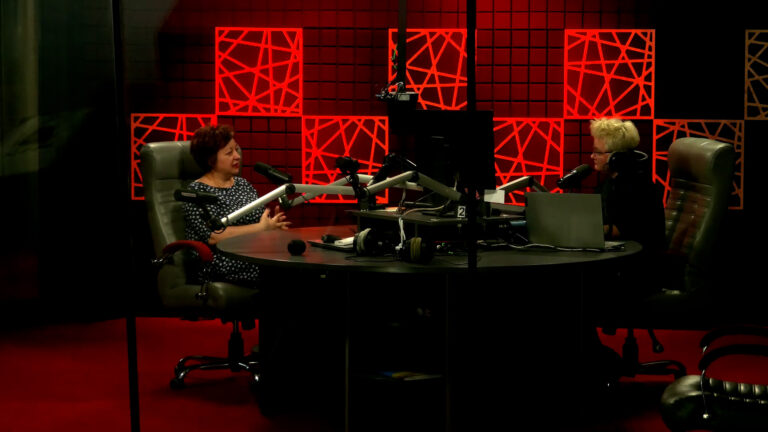
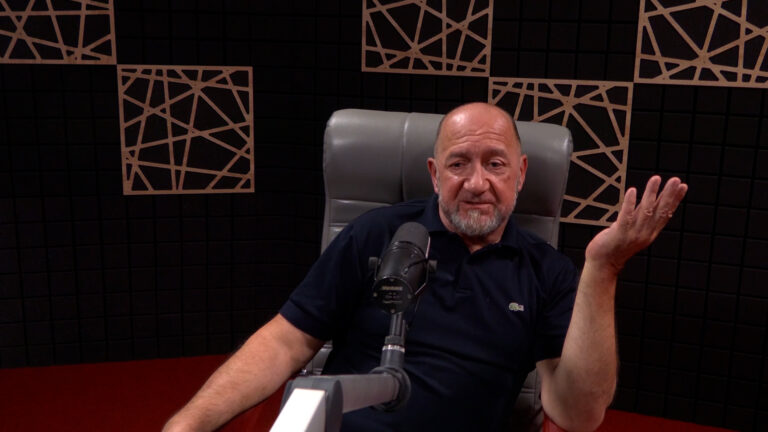
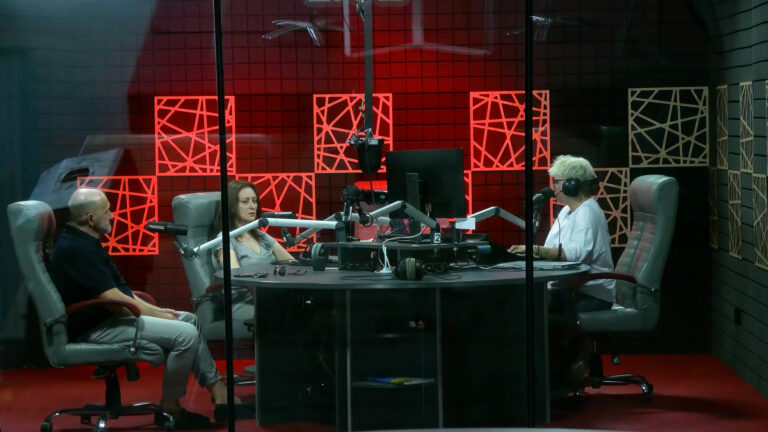
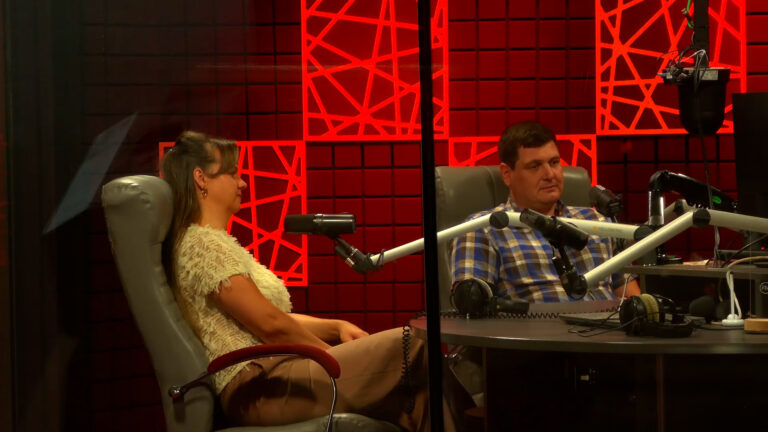
Media become the architects of change
Sarnenski Novyny from the Rivne Region investigated the city’s readiness for the needs of veterans with disabilities, checking the accessibility of public spaces and services. The newsroom launched the project “Barrier-free in the Sarny community: problems and solutions” back in September last year.
During its implementation, cooperation was established with the Barrier-free Council of the city council and the public. Positive changes have already occurred in the community to create a barrier-free environment. In particular, two barrier-free routes have begun to operate, and the third is being discussed on the EDEM platform.
The newspaper published the article “Barrier-free: from declarations to action,” in which journalists investigated how barrier-free routes are actually implemented in the city. The project has demonstrated its effectiveness in identifying barriers and fostering dialogue between citizens and the authorities.
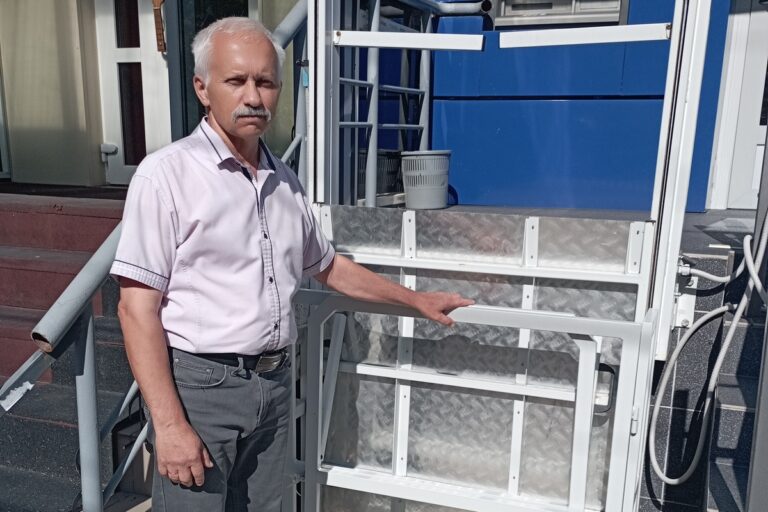
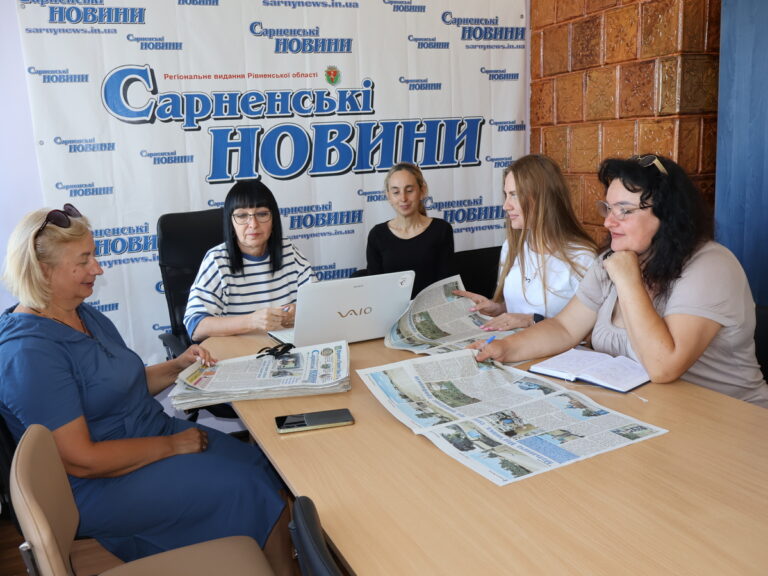
The Zakarpattian online publication PMG.ua implemented the project “Employment in Zakarpattia: where and how to find a job,” which became an example of a systematic approach to covering the problems of social adaptation. In July 2025, the newsroom published two in-depth articles devoted to various aspects of employment.
“Employment is probably the topic that will always find a response from readers,” says the director of the online publication, Ivan Harahonych. “Since there are many internally displaced persons in Zakarpattia due to the war, and many of them are looking for work, we decided to focus on their problems. We talked about the problems of employment, but also about opportunities and vacancies.”
The first publication highlighted the topic of creating conditions for employment and entrepreneurship among veterans in Zakarpattia. The second article analyzed in detail the challenges that internally displaced persons face in their job search. As Ivan Harahonych noted, thanks to the publication of such materials, it was possible, in particular, to attract more than 6,000 additional subscribers to the publication’s Facebook page.
Chernivtsi-based A.C.C. Media Agency, under the leadership of director Oksana Danyliuk, implemented the project “I Want to Know”, which became a vivid example of how the media can establish a direct dialogue between citizens and government officials. The project allows readers to ask questions to heads of various areas and government departments via social networks.
“For us, this project is a continuation of the work already started. At the start, we felt quite good feedback from both our readers and, actually, from speakers and potential speakers, there was interest on their part,” says agency director Oksana Danyliuk. “When we got the opportunity to continue this project further, we were happy to do so, because we understood that it was effective and useful. That is why we continued working on it and plan to continue it in the future. There is interest in this format.”
One of the issues concerned the work of epidemiologists and sanitary safety in public catering. This issue worries many residents of Chernivtsi.
A result that exceeded expectations
A significant innovation of the program was mentoring support for participants.
“This year, we introduced a mentoring component to the support program. When forming project applications, many media outlets received consultations on focusing efforts and implementing methodologies. During the implementation of projects, consultations were also carried out on attracting experts and working with the audience,” explains Iryna Khromenko.
Additionally, the NUJU organized two educational webinars. Vitalii Holubev, a media expert with 29 years of experience, shared the secrets of successful grant writing in the lecture “Honestly winning a grant for regional media is real.” And Olena Dub, a digital marketing consultant, spoke about the new possibilities of Facebook and Instagram for media.
During the two months of the program’s implementation, 15 media outlets (including Leopolis.News and Vysoky Zamok from Lviv, Procherk from Cherkasy, Visti Prydniproviya from Dnipro, Vilnyi Holos from Ivano-Frankivsk, Zoria from Lyman, Technopolis from Kramatorsk, and Novyi Den from Kherson) created over 40 journalistic materials of various formats, reached an audience of over 6 million people, and published over 270,000 copies of printed publications. However, the most significant achievement was the establishment of sustainable mechanisms for interaction between the media and communities. Most newsrooms indicated that they would continue the projects they had initiated independently. This indicates that the program achieved its main goal – not just to support the media financially, but to help them find new forms of service to society that turned out to be so effective that the newsrooms are ready to develop them independently.
The material was prepared within the framework of the Ukrainian Media Fund Project, which supports independent local media in Ukraine.
Maksym Stepanov
NUJU Information Service

 THE NATIONAL UNION OF
JOURNALISTS OF UKRAINE
THE NATIONAL UNION OF
JOURNALISTS OF UKRAINE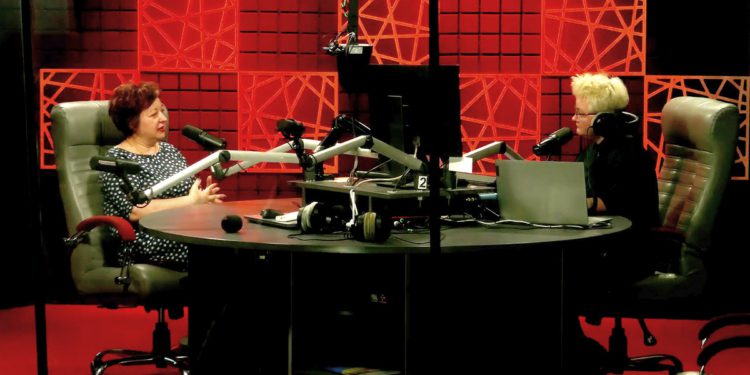
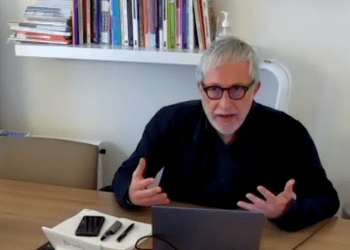
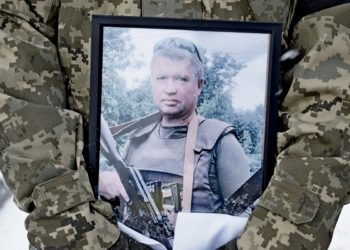
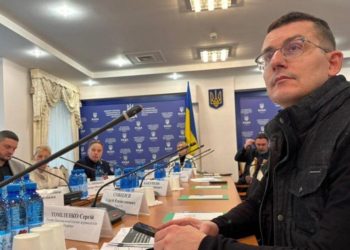













Discussion about this post